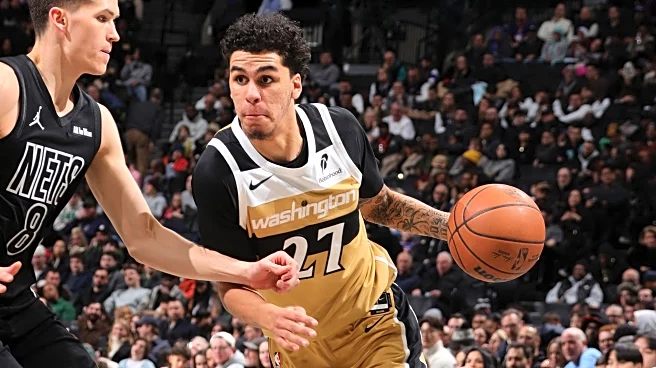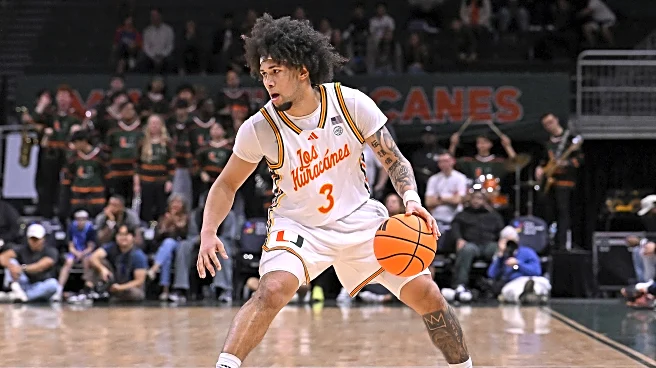What's Happening?
The Cincinnati Bengals are facing a challenging season with a 3-6 record following a narrow 47-42 loss to the Chicago Bears. The team is also dealing with the absence of their star quarterback Joe Burrow, who is out until mid-December. Amidst these difficulties,
former NFL star Kam Chancellor has publicly criticized Bengals rookie Shemar Stewart. Chancellor, who played nine seasons with the Seattle Seahawks and was a two-time NFL All-Pro, expressed disappointment in Stewart's performance, suggesting that Stewart lacks passion for the game and is more interested in its financial benefits. Stewart, drafted 17th overall in the 2025 NFL draft, has struggled with injuries and inconsistency, recording only two tackles and no sacks this season.
Why It's Important?
Kam Chancellor's criticism of Shemar Stewart highlights the pressures and expectations placed on NFL rookies, especially those drafted in the first round. Stewart's performance is crucial for the Bengals, who are already facing a tough season without their key player, Joe Burrow. The rookie's development and ability to overcome challenges could significantly impact the team's defensive capabilities and overall morale. Chancellor's comments may also influence public perception and put additional pressure on Stewart to improve his performance.
What's Next?
The Bengals will need to address their defensive struggles and find ways to support Shemar Stewart's development. With Joe Burrow sidelined, the team must rely on other players to step up and fill the void. Stewart's response to Chancellor's criticism and his performance in upcoming games will be closely watched by fans and analysts. The Bengals may also consider strategic changes or additional support to help Stewart reach his potential.
Beyond the Headlines
Chancellor's remarks raise questions about the motivations of young athletes entering professional sports. The balance between passion for the game and financial incentives is a topic of discussion in sports circles. Stewart's situation may prompt broader conversations about athlete development, mentorship, and the pressures faced by rookies in high-stakes environments.

















